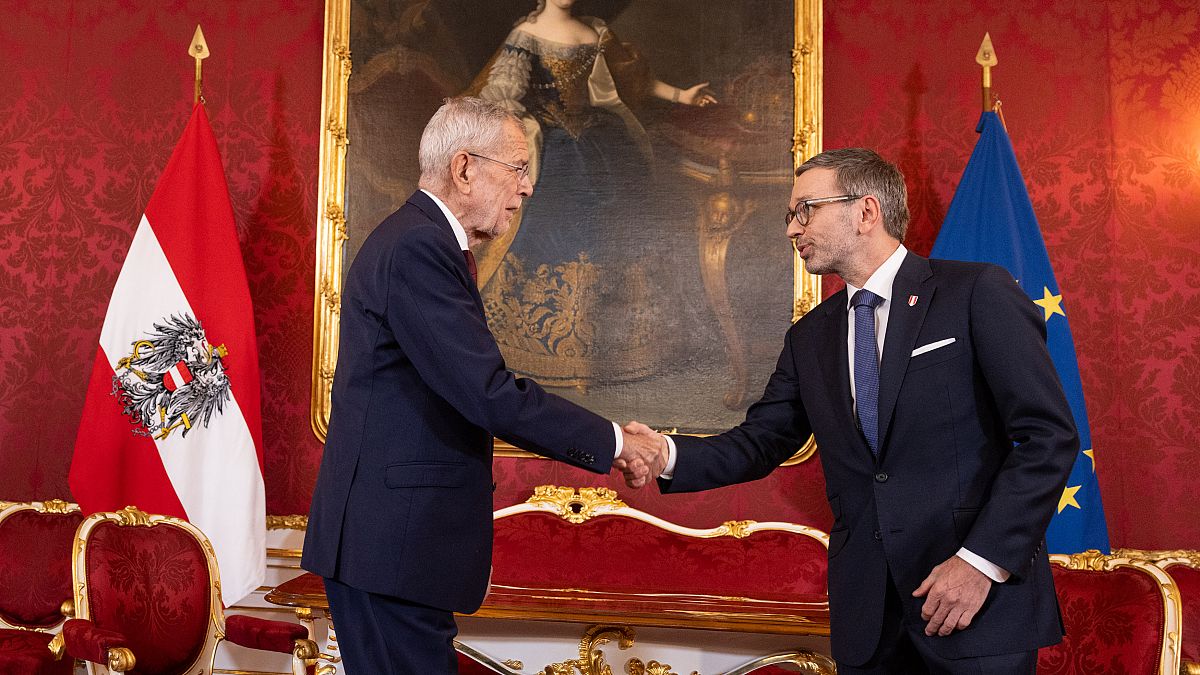Herbert Kickl, the leader of Austria’s far-right Freedom Party (FPÖ), is currently facing challenging coalition negotiations after his party secured nearly 29% of the vote in the recent national election. In order to form a government, Kickl must seek a coalition with other parties. However, the centre-left Social Democratic Party (SPÖ), the Green Party, and the liberal NEOS have all refused to collaborate with the FPÖ. The only party that has expressed a willingness to join forces with the FPÖ is the former ruling Austrian People’s Party (OVP), but only if Kickl is excluded from the government.
Kickl, known for his controversial views and endorsement of conspiracy theories, has been a longtime member of the Freedom Party and previously served as the interior minister in a government that collapsed due to a corruption scandal. Even Chancellor Karl Nehammer of the OVP, who has previously worked with the FPÖ in coalition governments, now considers Kickl a “security risk” and believes it is impossible to govern with him. The FPÖ, founded in 1956 by former Nazis, takes a hard-line stance on immigration and seeks to reclaim powers from the EU for Austria.
The FPÖ is part of a right-wing populist alliance in the European Parliament called Patriots for Europe, which advocates for lifting sanctions against Russia and criticizes Western military aid to Ukraine. Kickl has also been critical of European Commission President Ursula von der Leyen, labeling her as a “warmonger.” Despite these views, the FPÖ sees the recent election results as a sign of building on gains in other countries and is hopeful for the future.
The refusal of the SPÖ, Green Party, and NEOS to collaborate with the FPÖ has left Kickl in a difficult position to form a coalition government. The OVP, which secured 26% of the vote, is the only party that has shown willingness to consider working with the FPÖ, albeit with the condition of excluding Kickl. This presents a significant challenge for Kickl as he seeks to navigate the complex political landscape in Austria.
Kickl’s controversial views and past connections with the FPÖ have created a strained relationship with other political parties in Austria. His endorsement of conspiracy theories and anti-immigration sentiments have further alienated him from potential coalition partners. Despite his party’s strong showing in the recent election, Kickl may struggle to form a government without the support of key parties such as the SPÖ, Green Party, and NEOS.
As the leader of a far-right party with a history of controversial statements and policies, Kickl faces an uphill battle in forming a coalition government in Austria. His previous role as interior minister and connections with the FPÖ have raised concerns among other parties, making it difficult for him to find willing partners. The future of Austrian politics remains uncertain as Kickl navigates the challenges of coalition negotiations in the wake of the recent election results.











